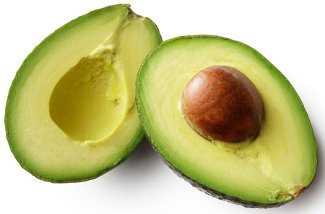 We’ve been told for years that avocados are good for us and even that they help lower overall cholesterol, but now there’s a scientific study that helps us understand that. And the results may even be better than we expected.
We’ve been told for years that avocados are good for us and even that they help lower overall cholesterol, but now there’s a scientific study that helps us understand that. And the results may even be better than we expected.
“Including one avocado each day as part of a moderate-fat, cholesterol-lowering diet compared to a comparable moderate-fat diet without an avocado provides additional LDL (low-density lipoproteins) lowering effects, which benefit CVD (cardiovascular disease) risk,” says Penny M. Kris-Etherton, professor of nutrition at Penn State.
Kris-Etherton and a team of researchers recently looked at the ability of three different diets to lower cholesterol and subsequently lower the risk of cardiovascular disease. All three diets consisted of lower to moderate amounts of fat. The differences were that one of the three diets incorporated one avocado each day and one diet included a comparable amount of high oleic acid oils—such as olive oil—to match the fatty acid content of one avocado.
Participants were closely monitored for cholesterol levels and other important health indicators during the study. All three diets lowered the LDL cholesterol levels of the participants. However, the participants that had eaten the diet that included the avocados had even greater reductions in LDL levels.
Futurity: The avocado diet was linked to a decrease in “bad” cholesterol of 13.5 mg/dL, while LDL decreased by 8.3 mg/dL on the moderate-fat diet, and by 7.4 mg/dL on the low-fat diet.
“This was a controlled feeding study, but that is not the real world—so it is more of a proof-of-concept investigation,” says Kris-Etherton. “We need to focus on getting people to eat a healthy diet that includes avocados and other food sources of better fats.”
So don’t just eat guacamole, add some diced avocados to your salad, put some sliced avocados on your next sandwich and make a smoothie with some fruit and an avocado. This versatile fruit can be incorporated in your diet in many creative and tasty ways, so start using it!
Additional researchers from Penn State and the University of South Australia worked on the study, which the Hass Avocado Board, the National Center for Research Resources, and the National Center for Advancing Translational Sciences supported.

Leave a Reply